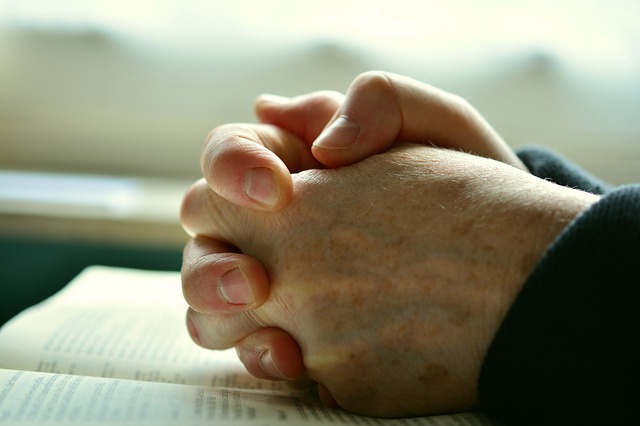
Why We Should Have Prayer In School
- By Derek Welch --
- 03 May 2018 --

The Restriction Does Not Make Sense
Today is uniquely strange in America. It is a national holiday that schools cannot legally celebrate. No, it is not Pirate vs. Ninja Day. It is the National Day of Prayer. But schools cannot have prayer. Since 1962 the Supreme Court ruled in Engel v. Vitale that a public school cannot sponsor any religious activity.
Why We Should Have Prayer In School[/tweetthis]
This is a blurry line. A student can independently pray at a school, but the school cannot support the activity in any way. For example, the Supreme Court ruled in Santa Fe v. Doe that although students started a prayer, it was illegal because they used the school’s PA system, making it a school-sanctioned activity. Student prayer is also limited in scope. If it is considered a “captive audience,” like a game or graduation, it is held to be school sponsored.
The theory is that it intimidates students that do not have faith and violates the separation of church and state.
Honestly, why is this still a concern?
The Establishment Clause, which rules that the United States may not sponsor an official religion, is not completely without exceptions. The United States has chaplains for Congress and armed services. The justification the Supreme Court gave for chaplains was a historical tradition. But the United States has always had a tradition of prayer in schools. It is unclear why chaplains are allowed, and prayer is not.
There is also the threat of intimidation. First, children do not listen to everything that is said in schools. For those that have faith, prayer can be a powerful way to renew their commitment. Other students do not have to listen or care. What significant student population hears a prayer at school and then converts? If that was a real concern then we should probably stop having students say the Pledge of Allegiance, which has millions of students swear to God every day.
It also creates an erosion of religious expression, violating a student’s freedom of expression. We have had valedictorians attacked for saying the Lord’s Prayer during their speech or coaches fired for praying with their football teams. So we limit the freedom of speech of some citizens in practice because of the potential to restrict the speech of others. For two different, conflicting rights, it is better to side with the one that is actually limited instead of theoretical. Texas, Kentucky, Mississippi, and South Carolina have either passed or are in the process of adopting laws that would give students more freedom to express their religion at school. But this could be overruled by a federal judge using the Engel v. Vitale decision.
Prayer has been shown to give positive psychological benefits to those that participate in it. Even if you are not religious, it could be used as a term for personal reflection or meditation. While organizations could claim that this would lead to a particular religion being promoted, why not have school prayers for every religion that wanted it? The answer to most freedom of speech issues is not to limit speech, but to allow for more of it. We should allow a school, if they want to have a prayer of any sort, to go ahead.
Sixty-five percent of Americans believe that we have gone too far with keeping religion out of schools. The essence of democracy is the rule of the people. If the majority agree it is time to change, if the law limits the freedom of those it is trying to protect, there is only one course of action.
We must return prayer to schools.


















